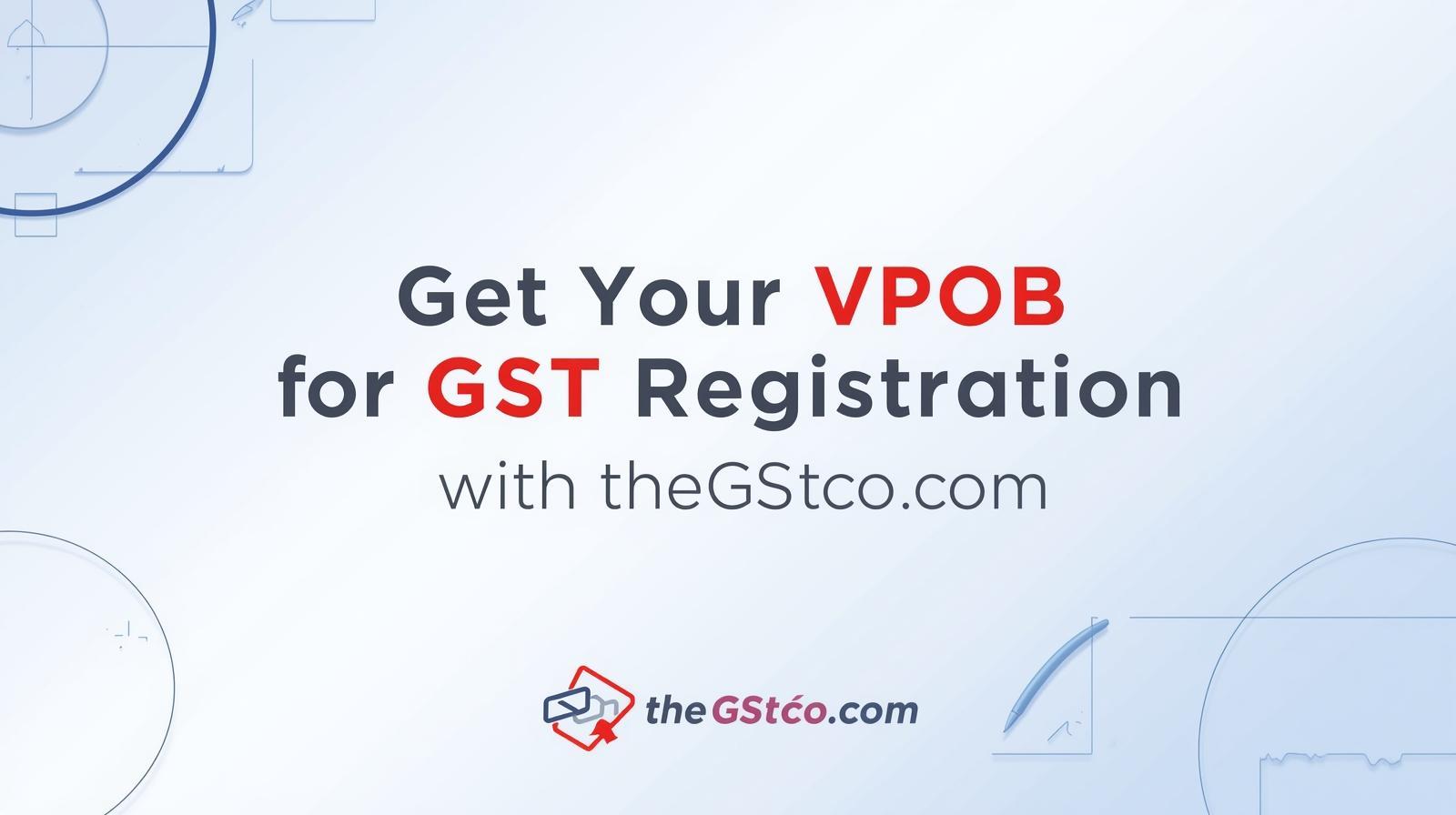Avoid These Common Mistakes During GST Application: A Guide to VPOB for GST Registration

Getting your business registered under the Goods and Services Tax (GST) is an essential step in making your enterprise legitimate and compliant. However, many business owners, especially those new to the system, often make errors that can delay or even derail the approval process. With the growing trend of using VPOB for GST Registration (Virtual Place of Business), understanding the correct way to apply is more important than ever.
A VPOB serves as a legally recognized virtual address that allows companies to register under GST without the need for a physical workspace. This option is especially beneficial for startups, freelancers, and online sellers who operate remotely. Yet, mistakes in documentation or inaccurate details during registration can cause serious setbacks. Below are some of the most common mistakes applicants make—and how to avoid them when using a VPOB for GST Registration.
Submitting Wrong or Incomplete Business Details
One of the main reasons GST applications get rejected is due to incorrect or incomplete information. Simple errors such as spelling mistakes in the business name, mismatched addresses, or an incorrect PAN number can delay approval.
When using a VPOB for GST Registration, make sure every document provided by your virtual office provider—like the rent agreement, NOC, and utility bill—matches the details in your GST form. Cross-check all information carefully before submitting, as even small inconsistencies can lead to rejections.
Using an Unverified or Invalid Business Address
Another common issue occurs when applicants use an unverifiable address. The GST department verifies every business location submitted, so your VPOB must have valid proof such as a registered rent agreement, NOC from the property owner, and the latest utility bill.
Avoid low-cost or unverified virtual office providers that recycle the same address for multiple clients. Choosing a trusted and certified provider offering government-approved VPOB locations across states ensures your registration remains safe and compliant.
Uploading Poor-Quality or Blurred Documents
Blurry or incomplete documents are among the top reasons GST officers delay or reject applications. Since every uploaded file is verified manually, unclear scans make verification difficult.
Always upload high-resolution, full-page scans of your documents. Many reputed VPOB providers offer digital copies that are pre-verified and formatted correctly, saving you time and effort.
Selecting the Wrong Business Type
Choosing the wrong business structure during registration is another frequent mistake. For instance, a freelancer may accidentally select a private limited company, or an online seller might forget to mention they operate through e-commerce platforms.
Before submitting your GST form, identify your correct business type. If you’re unsure, your VPOB provider or a GST expert can help you choose the right category based on your operations.
Forgetting to Mention All Business Locations
GST registration allows you to list both your primary and additional business places. Many business owners overlook warehouses, storage units, or fulfillment centers—especially e-commerce sellers—which can cause compliance issues during audits.
If your business operates in more than one state, you must register separately for each location. Using a VPOB for GST Registration in each state helps you stay compliant while reducing the cost of renting multiple physical offices.
Missing or Improper Authorization Letter
An authorization letter from the business owner or authorized signatory is mandatory for GST registration. However, many applicants either forget to include it or upload an incorrect version.
A professional VPOB provider usually includes a preformatted authorization letter as part of the documentation. Before uploading, make sure it includes your name, designation, and signature.
Ignoring Queries from GST Officials
After submission, the GST department may raise queries or request additional information. Ignoring these notifications or failing to respond on time can result in automatic rejection of your application.
Monitor your registered email and GST portal regularly for any updates. A reliable VPOB provider will usually assist in responding to such queries quickly to keep your application on track.
Choosing an Unreliable VPOB Provider
Perhaps the most critical mistake is selecting an unverified or low-quality VPOB provider. Some providers reuse the same business address for several clients or fail to provide valid documents. This can cause your GST registration to be suspended in the future.
Always choose a trusted provider offering complete and authentic documentation, including the rent agreement, NOC, and utility bill. A genuine provider ensures that your VPOB for GST Registration is compliant and risk-free.
Neglecting Post-Registration Compliance
Once your GST certificate is issued, your responsibility doesn’t end there. Many business owners forget to keep digital and physical copies of their VPOB documents, which can cause trouble during future audits or inspections.
Maintaining proper records not only ensures compliance but also demonstrates professionalism. Always store all VPOB-related documents securely and stay ready for verification if needed.
Conclusion
Applying for GST can be simple if done carefully. Most rejections happen due to basic errors—incorrect details, poor document quality, or invalid addresses. By paying attention to every step, you can avoid unnecessary delays and ensure quick approval.








